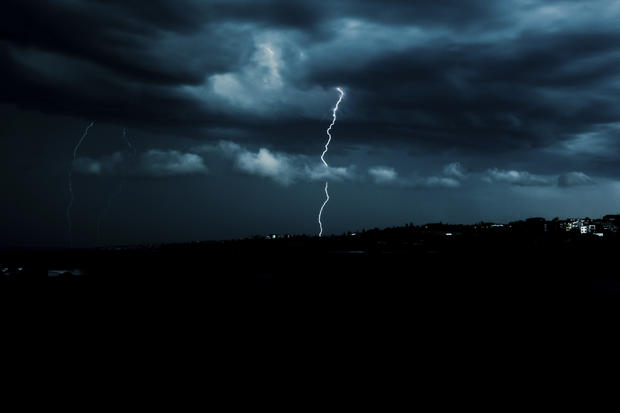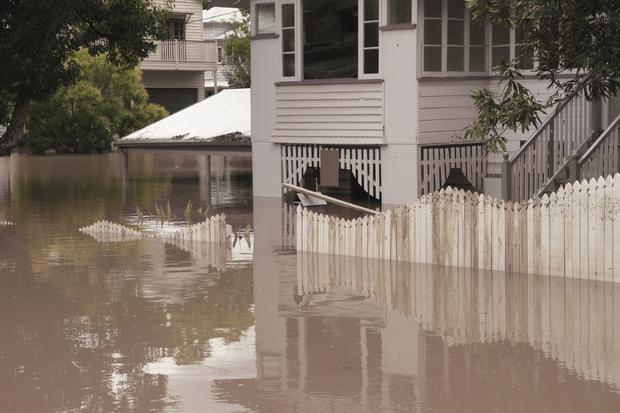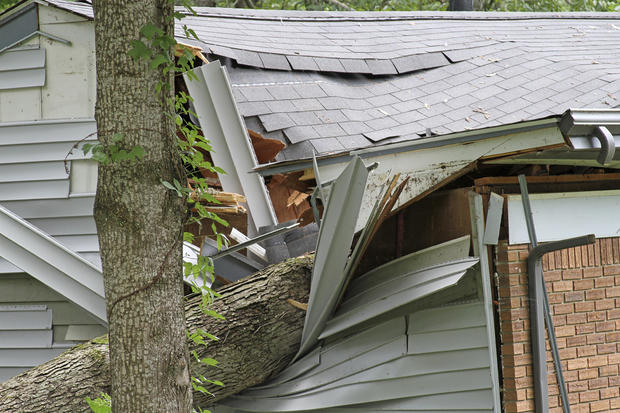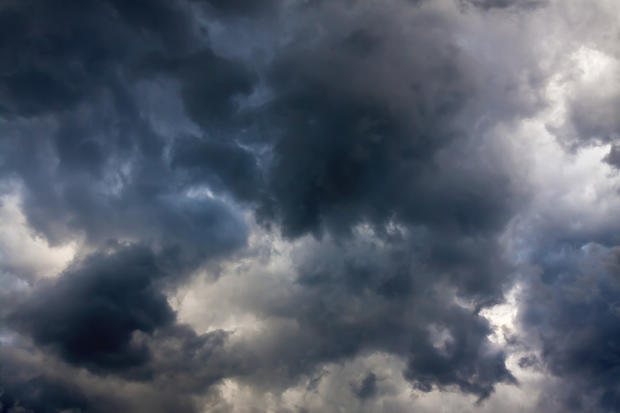Insurance: What exactly constitutes an "Act of God"?
By Moneytips
"Acts of God," for insurance purposes, are defined as events that occur through natural causes and could not be avoided through the use of caution and preventative measures. In essence, the phrase "Acts of God" refers to natural disasters.
The phrase generally brings to mind hurricanes, tornadoes, earthquakes, hail, or floods. However, the lines can be fuzzier than most people realize.
For example, consider fires. An accidental fire in your home is not considered an Act of God because it could have been prevented, either by someone's actions in starting the fire accidentally or poor workmanship during construction of the house. A fire caused by a lightning strike that consumes multiple homes, such as often occurs in the West, would be an Act of God. What happens when a similar fire is an act of arson?
The key is whether a human or humans could reasonably be considered at fault -- at least until insurance companies find a way to sue God.
Now for the big question: Is your car or home covered against Acts of God?
In both cases, the answer depends on what type of policy you purchased and the coverage and exclusions that it includes. Many Acts of God may be covered, but the definition of an Act of God is whatever your policy says that it is.
Generally, you will not see the phrase "Act of God" in policies, and perhaps not "natural disasters." Policies tend to refer to specific risks or classes of risk as "perils." Anything that is not spelled out as a specific exclusion or risk is subject to debate, and you can guess who will win that debate. It is important to ask for definitions to be spelled out before a debate on the subject becomes necessary.
While your policy may vary, several generalities are usually true with respect to Acts of God.
Flooding is not usually covered
Homeowners and auto policies generally do not include flooding in their policies. Homeowners in flood-prone areas have to seek flood insurance through FEMA's National Insurance Flood Program. Auto insurance usually requires comprehensive coverage to pay on flood damage.
Auxiliary damage may not be covered
Your insurance company will be thinking, "Is there any way we can blame somebody else for this damage?" Let's consider the example of a tree falling on your house as a result of a windstorm.
The default position is that you are "probably" covered for the damage under your insurance -- but what if the tree was rotten? Should you have been expected to know that and have the tree removed? What if it is your neighbor's tree? Would their insurance company be expected to pay instead?
Similarly, it is not unheard of to be covered for wind damage directly caused by a storm but not for any damage from subsequent flooding.
Where you live matters
Keep in mind that insurance is always based on risk assessment, and Acts of God are no different in that regard. For example, if you live in a tornado- or hurricane-prone area of the U.S., the risks are so high that coverage for those perils may not be standard.
Riders are available
Riders may be purchased as add-on policies for other risks such as earthquakes and sinkholes, as well as for normally covered perils -- such as tornadoes if you live in a tornado-prone area and cannot get standard coverage with your homeowner's policy.
Coverage for Acts of God is not always straightforward, and it is not usually in insurance company interests to make it so. The bottom line is to clarify, clarify, clarify.
Read your policy and make sure you understand all exclusions and the default position (whether unspecified Acts of God are considered covered or uncovered). It can make the difference between a relatively short recovery from a natural disaster and a prolonged battle with your insurer... a battle that you may ultimately lose.




